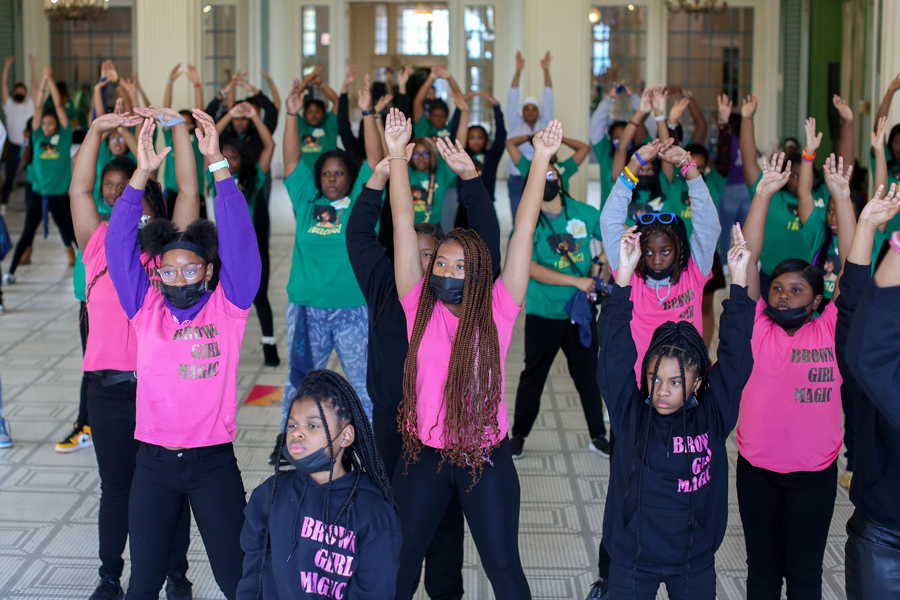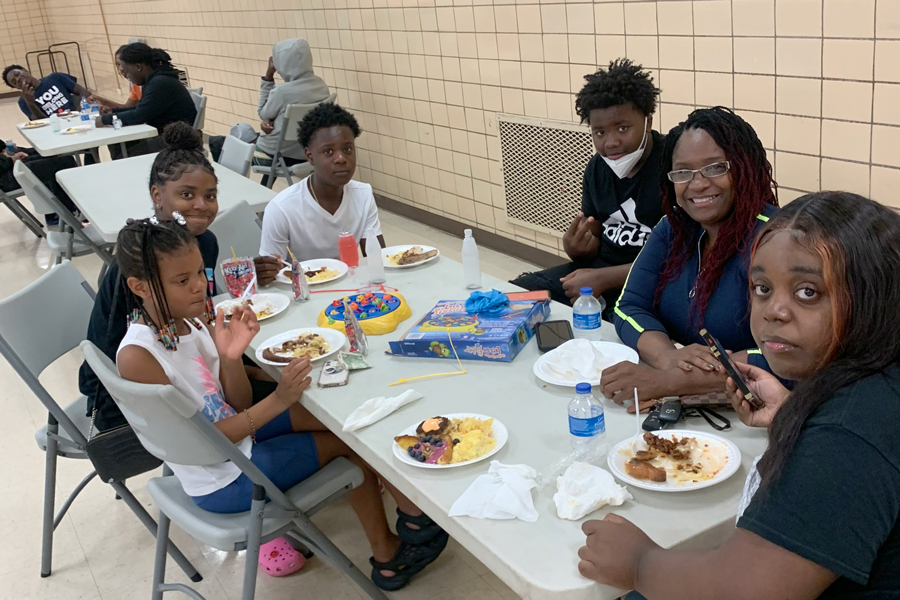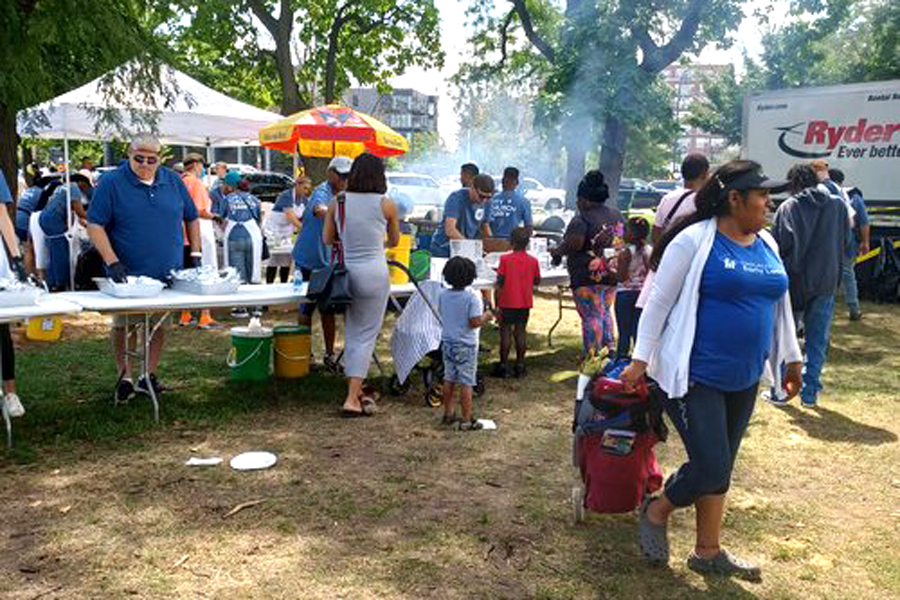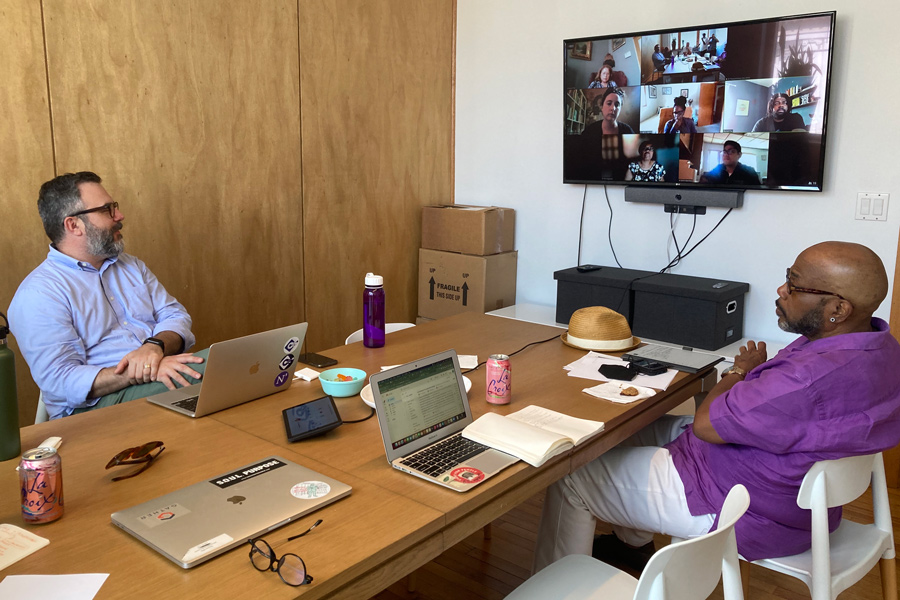An open letter to Chicago Funders from 30 members of the Chicago Peace Fellows Mutual Aid Collaborative
As Black, Indigenous and People of Color (BIPOC) leaders and deeply committed allies rooted in the communities we serve on the South and West sides of Chicago, we call on funders to rectify the racial inequity that exists in philanthropy, invest in the approaches developed by authentic grassroots leaders, and trust our capacity to manage resources in a way that will lead to our collective liberation.
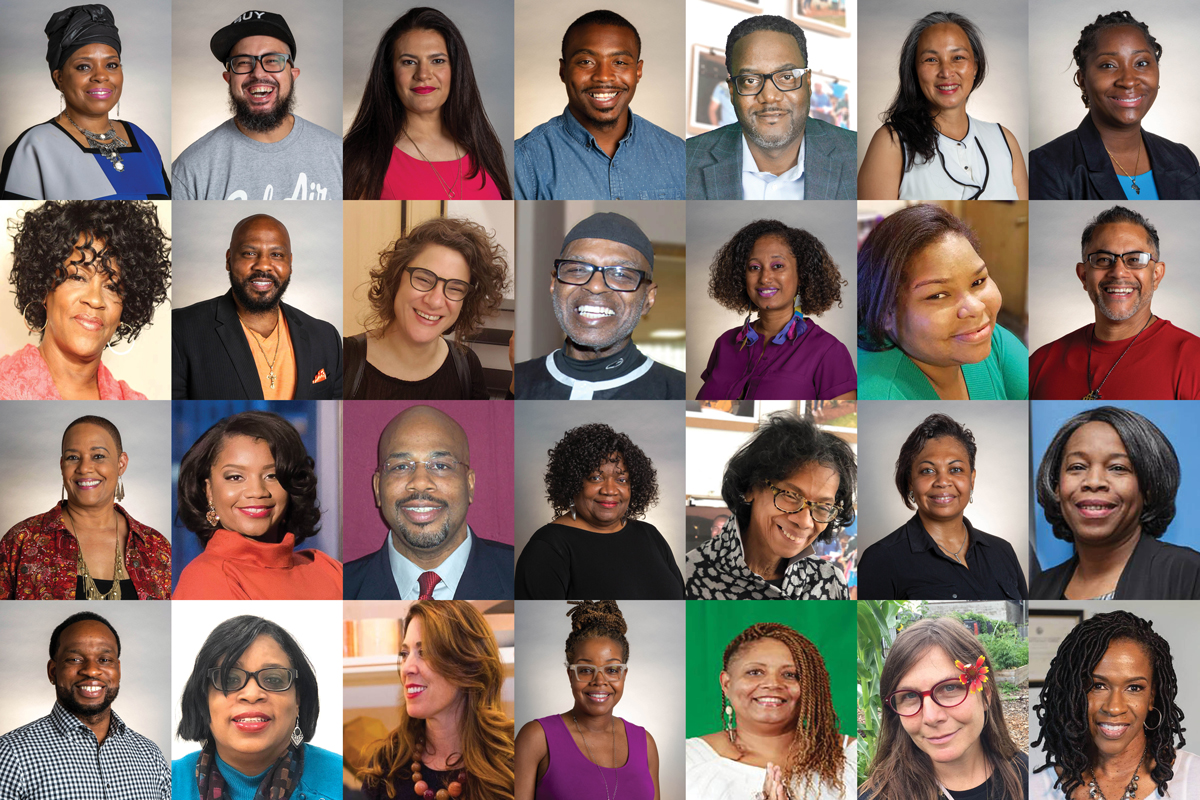
Our organizations are located in and accountable to our communities, yet we continue to be overlooked, undervalued and often cut out by funders. Inspired by the legacy of Phillip Jackson, founder of The Black Star Project, we are renewing the call to Chicago foundations, civic leaders, and those in positions of power to right their relationships with organizations like ours and engage in anti-racist philanthropy.
In this moment, we have seen many funders acknowledge the historic and ongoing impact of systemic racism, anti-Blackness, and the burden of continued divestment in communities of color. We have also seen an increasing number of funders recognize the ways that current funding practices reinforce disparities, particularly for Black-led organizations, which on average have revenues 24 percent smaller than those of their white-led counterparts.
Following the nationwide uprisings in the wake of the murders of George Floyd, Breonna Taylor, Adam Toledo, and too many other people of color, we applauded philanthropy’s commitments to invest more to BIPOC-led organizations. But the reality for those of us on the frontlines of serving our communities is that more than a year later, little has changed. We continue to be called upon to fill in the gaps when systems fail our communities. We face an increase in demand for our services while we continue to be overlooked and underfunded.
The Chicago Peace Fellows Alumni launched the Mutual Aid Collaborative as a model of the structural changes we seek: we are 60 Black and Brown leaders and committed allies who live and work in the communities we serve on the South and West sides, and we practice a liberatory model of shared leadership, accountability, collaborative decision-making and collective action. For us, “community-accountable” means:
- Leadership, board and staff who are rooted in and reflective of our communities.
- Building into everything we do, the cohesion and collective efficacy of our communities.
- Self-determination and anti-racism are front and center in all of our work.
- Rather than scale, the focus of our work is on depth and impact.
- We practice shared leadership to help our communities survive an unjust system as we build our envisioned liberatory future.
Because we are accountable to our communities and connected to each other, our objectives are not to scale our individual organizations to as many neighborhoods as possible. Rather, our objectives are to know, respect and serve our communities, leaving no one behind. Our work is critical and vital to building safe and healthy communities. We are among the first to respond to the needs of individuals because of our deep relationships and localized knowledge. Our organizations advocate for change, build power among community members, and engage in direct service in response to the everyday needs of individuals, all towards the aim of solidarity and liberation.
Today, we call on Chicago Foundations to pledge to take immediate, meaningful action to address racial inequity and establish right relations with community-accountable organizations.
Here are four initial steps you can take to begin to address the racial injustice in philanthropy that holds us back:
1. Equitably fund community-accountable BIPOC-led organizations on the South and West sides of Chicago
Because of racial bias (personal and institutional, conscious and unconscious), our organizations receive less money than organizations led by white leaders, and we call on funders to flip this script. Regardless of the type of work you fund, take a look at your portfolio of grantees and ask yourself whether the organizations you support are truly grounded in, and accountable to, the communities they seek to serve. Consider the appropriate balance in your philanthropy so that the entire ecosystem of organizations and groups can thrive. There are many well-intentioned large nonprofits who do not know our communities and “serve” us without an appreciation for our history, context, and culture. Reallocate some funding to BIPOC-led, community-accountable nonprofits, and support strategies such as community-directed pooled funds that enable grassroots organizations to collaborate and share resources.
2. Engage in authentic relationships that prioritize transparency, truth, and humility
When interacting with our organizations, appropriately value our community expertise, communicate clearly about your processes and how you will make decisions, and dare to build authentic and trust-based relationships (even if you might not fund us). An anti-racist world is only possible if we move past transactional relationships and lean into our shared humanity. Funders who are committed to changing their practices should also be able to recognize the long-standing racialized trauma that our organizations continue to experience in our relationship with philanthropy. Understanding and acknowledging that history should inform how you approach working with us. We also challenge you to engage with us with humility and recognize that we have knowledge and expertise you do not have. Too often, philanthropy views BIPOC leaders from the areas we serve as part of the problem rather than part of the solution. In the future we envision, funders will engage with our organizations in a spirit of partnership with an understanding that we have much we can learn from each other.
3. Provide easy-to-access, multi-year, flexible, and full cost funding
When supporting our work, provide resources that maximize our ability to be creative and impactful, and remove barriers to participation. Multi-year and flexible funding is a good way to start, along with user-friendly and streamlined application and reporting processes designed to reach far into the community. When you create complex processes that require us to jump through multiple hoops and fill out laborious application forms, we end up not accessing valuable funding or spending more time seeking funding than doing our work. Relatedly, we also challenge you to fund the full cost of our efforts and value our work in the same way you value that of academic researchers or outside consultants. Too many of us have experienced the sting of unrealistic expectations from a funder or felt the pressure to over-promise to access funding.
4. Resist the urge to scale without respect for community expertise, and let us define our own measures of success
When working with our organizations, it is imperative that our communities decide their own priorities and determine what success looks like. Over the years, many of our organizations have been asked by funders to “scale” in ways that come at the expense of deepening our work in the communities we already serve. The misguided focus on scaling up single organizations leads to foundations being unduly risk averse and undercuts collaborative approaches based on trust, sharing and collective efficacy. While there are times when scaling up is the right strategy, used without reflection it can create or reinforce problematic power dynamics. We believe that anti-racist philanthropy needs to be centered on self-determination, value the work and wisdom of those of us on the front lines, and build in processes for our communities to determine what success looks like in evaluation and reporting.
All Foundations, corporations or donors that are willing to pledge to stand up for racial equity are invited to connect by completing this short form:
CONNECT WITH US
If you have questions or suggestions, please connect with us at This email address is being protected from spambots. You need JavaScript enabled to view it. or at (312) 951-1691.
We also welcome inquiries from other community accountable organizations who share our vision and want to join our movement for a more just and equitable philanthropy.
We know that both immediate and sustained action is required. We look forward to learning together and partnering with you on this long march towards our collective liberation.
Signed:
- Mona Antwan
- Mekazin Alexander
- Pastor Robert Biekman
- Pastor Victoria Carol Brady
- Pamela Butts
- Robin Cline
- Lisa D. Daniels
- Dr. M. Michelle Day
- David Gonzalez
- La'Keisha Gray-Sewell
- Michael Henderson
- Dawn Hodges
- Pastor Philip Jackson
- Dr. Sokoni Karanja
- Annette Kelly
- Diane Latiker
- Frank Latin
- Annamaria Leon
- Adi Lerner
- Jennifer Maddox
- Jacquelyn Moore
- Damien Morris
- Margaret Murphy-Webb
- Cosette Nazon-Wilburn
- Meghan Olson
- Pamela Phoenix
- Gloria Smith
- Jamila Trimuel
- Tameka Walton
- Joseph Williams
This open letter was written by members of the Chicago Peace Fellow’s Mutual Aid Collaborative, a growing network of Black and Brown leaders and committed allies who are alumni of the Chicago Peace Fellows program. As community accountable leaders who live and work in the communities we serve on the South and West sides, we developed this pledge through a liberatory model of shared leadership, collaborative decision-making, and collective action.
